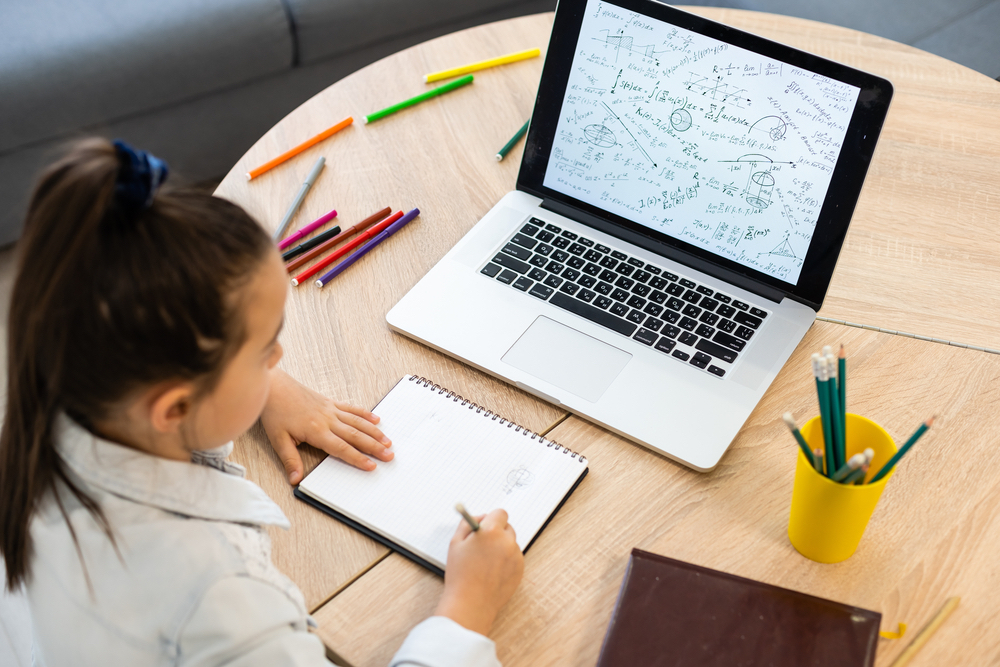The rapidly increasing pace of change in education and lifestyles requires everyone, even children, to understand the situation and quickly adapt to the constant shifts. This pushes individuals to revert to old habits to check items off their do-to-lists, preventing them from doing new things in innovative ways. Regardless of the benefits of this predictive power, it can prevent children from acquiring different capabilities and growth opportunities.
For parents and educators, fostering holistic child development is essential, and establishing a growth mindset is a key step. Understanding the difference between knowing and learning thus makes it easy for you to build your child’s learning skills. This is because the brain in knowing mode and in learning mode is vastly different. Since a child’s brain changes more readily due to its neuroplasticity, learning new strategies and developing healthy habits can have a lasting impact.
Learning is a Learnt Behaviour
Many throw the phrase “practice makes perfect” without comprehending the semantics of it. Does this mean that repeating the same task over and over again will drastically improve your child’s skills? Should these practice sessions be intense and require absolute focus? Is play allowed during practice? Though relatively ill-defined, one thing this expression does make clear is that learners are made, not born. Pairing practice with specially designed strategies to improve learning abilities will accelerate development effectively and nurture in your child the love for learning.
However, this does not mean that the typical rote learning method that builds a child’s knowledge systematically through memorisation techniques is the only way forward. To build your child’s content knowledge, constructive and inquiry-based activities that are based on your little one’s interest are also important. Doing so will inject an element of newness, also known as the novelty effect, that facilitates the formation of a strong memory and keeps them on their toes.
Building Your Child’s Learning Skills: Learning How to Learn
Since learning is a learnt behaviour, parents must expose their children to several practical habits. Three of these include:
1. Organising Goals
There is no denying that children have an immense urge to learn and master skills. Their limitless curiosity is what makes them innately drawn to trying new things until they are adept at them – a childhood drive that even adults try to retain. To keep this fire alive in your child and ensure effective learning continues throughout their developmental stages, sit with them to set achievable goals about what they want to learn.
For example, if your child wants to learn mathematical division, they must first understand the need to have a targeted approach to learning. Basics such as addition and multiplication are all goals they must first have a foundation in before doubting their capabilities in doing division sums. As such, setting targets will lay their objectives out in black and white, helping them manage their emotions and achieve progress easily.
2. Reflecting on What Was Learnt
When we face a problem, we are often told to take a step back and look at the big picture. Similarly, learning how to assess oneself, solicit feedback and learn from mistakes can increase your child’s aspirations. Have them reflect on what they now know, what they do not, skills they have acquired and skills they still want to attain. Focusing on all that they have gained and learnt will also increase their appetite for development. Moreover, when children are encouraged to expect mistakes during their learning journey, persistence and heightened interest are sure to come naturally to them.
3. Acing the Art of Learning
Today, there is a common understanding that children are facing more academic pressure than ever before. Therefore, to nurture in them a Champion Mindset, equipping them with the skills and mindsets vital to thrive in the academic environment and beyond is crucial to acing the art of learning. At MindSpace, our curriculum follows the MindChamps Hourglass Learning Model. Divided into three stages – Active Understanding, Active Storage, and Active Recall – we interweave dedicated practices that have been proven to improve a child’s ability to learn more effectively and develop expertise faster. From educating them on methods of analysing to the eventual application of concepts, we ensure that your child remains in control of confidently applying the knowledge they have gained.
As parents, you need to take active steps to ensure that your child is actively learning to learn. Marrying standard rote learning practices with enriching curriculums that impart in them the art of learning, our student care centre actively takes one step in that direction. Get in touch with us or book a visit to a nearby MindSpace student care centre to learn more!
